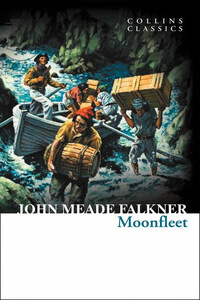In 1819, millworker William Collins from Glasgow, Scotland, set up a company for printing and publishing pamphlets, sermons, hymn books and prayer books. That company was Collins and was to mark the birth of HarperCollins Publishers as we know it today. The long tradition of Collins dictionary publishing can be traced back to the first dictionary William published in 1824, Greek and English Lexicon. Indeed, from 1840 onwards, he began to produce illustrated dictionaries and even obtained a licence to print and publish the Bible.
Soon after, William published the first Collins novel, Ready Reckoner, however it was the time of the Long Depression, where harvests were poor, prices were high, potato crops had failed and violence was erupting in Europe. As a result, many factories across the country were forced to close down and William chose to retire in 1846, partly due to the hardships he was facing.
Aged 30, Williamâs son, William II took over the business. A keen humanitarian with a warm heart and a generous spirit, William II was truly âVictorianâ in his outlook. He introduced new, up-to-date steam presses and published affordable editions of Shakespeareâs works and Pilgrimâs Progress, making them available to the masses for the first time. A new demand for educational books meant that success came with the publication of travel books, scientific books, encyclopaedias and dictionaries. This demand to be educated led to the later publication of atlases and Collins also held the monopoly on scripture writing at the time.
In the 1860s Collins began to expand and diversify and the idea of âbooks for the millionsâ was developed. Affordable editions of classical literature were published and in 1903 Collins introduced 10 titles in their Collins Handy Illustrated Pocket Novels. These proved so popular that a few years later this had increased to an output of 50 volumes, selling nearly half a million in their year of publication. In the same year, The Everymanâs Library was also instituted, with the idea of publishing an affordable library of the most important classical works, biographies, religious and philosophical treatments, plays, poems, travel and adventure. This series eclipsed all competition at the time and the introduction of paperback books in the 1950s helped to open that market and marked a high point in the industry.
HarperCollins is and has always been a champion of the classics and the current Collins Classics series follows in this tradition â publishing classical literature that is affordable and available to all. Beautifully packaged, highly collectible and intended to be reread and enjoyed at every opportunity.
Piracy, Smuggling and Antiheroes
John Mead Falkner, the author of Moonfleet, owes a lot to Robert Louis Stevensonâs Treasure Island, published 15 years earlier, in 1883. Stevensonâs story is about pirates in search of gold on the high seas, while Falknerâs is a tale of smugglers striving to make their fortune from contraband on the English south coast. The two books share a similar theme of antiheroes doing their best to earn a living as outlaws, at a time when the stakes were high and capture resulted in capital punishment. Additionally, both novels are essentially childrenâs adventure stories.
Daphne du Maurier wrote a similarly themed novel in 1936, titled Jamaica Inn, based in Cornwall. In her story, the protagonists are wreckers. They make a living stealing the cargoes of ships that run aground on the English coast, after luring passing ships onto the rocks using lamps to imitate lighthouses and then killing any surviving seamen to avoid being identified. The first novel of Samual Rutherford Crocket, entitled The Raiders (1894), has a similar trope and is based in Galloway, Scotland. There is also The Smuggler (1845), by English novelist George Payne Rainsford James. Prosper Mériméeâs novel of the same year, Carmen, is also about smuggling; this time set in Spain. It was famously turned into an opera by the French composer Georges Bizet and librettists Henri Meilhac and Ludovic Halévy.
As well as such literary influences, Falkner would have been inspired by true stories of smuggling along the English south coast. The motive behind smuggling was to avoid the revenue collected by the government, which was very high on certain goods. A profit could be made by purchasing goods in France and selling them on in England. The goods in question included tobacco, tea and various spirits, such as rum, gin and brandy. The revenue mark-up could be as much as six times the source cost, which is why smuggling was such a lucrative venture and punishment was severe.








